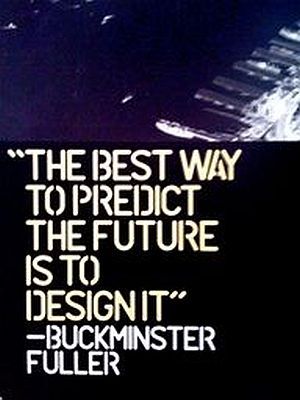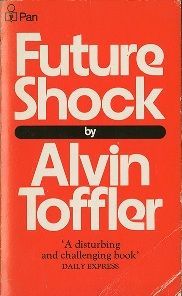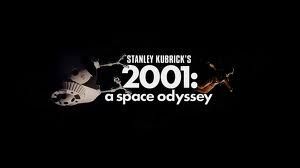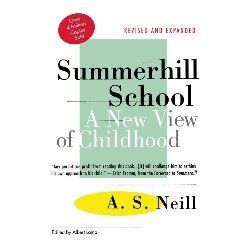
Publisher:
Bonnie King
CONTACT:
Newsroom@Salem-news.com
Advertising:
Adsales@Salem-news.com

~Truth~
~Justice~
~Peace~
TJP
Mar-02-2013 16:50

 TweetFollow @OregonNews
TweetFollow @OregonNews
Future Thought
Dr. Paul Balles Salem-News.comWe must look forward to the future as that is where most of us will spend the rest of our lives. --Charles Kettering
 |
(MANAMA, Bahrain) - A book that gave cause for thought in 1970, Alvin Toffler’s Future Shock, predicted some difficult tomorrows. Toffler presented clear evidence of how the speed of change had increased drastically as human progress pushed forward.

One couldn't help being impressed by Toffler's observation that more changes have taken place in the past 2000 years than in the 200,000 years before that, and that more changes have occurred in the last 200 years than in either the previous 2000 years or 200,000 years.
What's shocking about this is the realization that we no longer have a generation for our children to adapt to change. Speed itself compels a change in the rate of decision-making and, as Toffler says, "all decision systems have limits as to how fast they can make complex decisions."
Though Alvin Toffler was by no means the first person with an interest in futuristic thinking, he was the first modern writer to make people aware of the importance of future studies.
Futurist Michael Findlay offered an interesting story about people missing Toffler's ideas:
- At a dinner party held for the Chinese ambassador in the late 1970s, Toffler found himself seated with the top executives from NBC and RCA. Since it would be unlike him not to take advantage of such access, he asked them how broadcasting would be different five years hence. Both smiled languidly and assured Toffler there would be no major changes.
- They, like everyone else who would lose their jobs in the years ahead for not seeing the approaching third wave, saw a future of fine tuning and incremental adjustments. Amidst the tremendous upheaval of our times, they were asleep at the wheel and proud of it.
Another futurist thinker--expert on Lateral Thinking--Edward De Bono observed that "You can analyze the past but you have to design the future."
De Bono said "Keeping your balance on a surfboard is a matter of continuous adjustment. There is no one stance that makes subsequent adjustment unnecessary.”
The same is true of the need for creative thinking to adapt to change. We can anticipate some of the effects of change. We can set up structures to cope better with change. This requires critical thinking, as does the response to unforeseen difficulties that arise.

Arthur C. Clark, who co-authored Space Odyssey 2001, provided one of the best-known examples of fictional future thought. Much of science fiction has made attempts at future thinking, though most of it seems improbable if not impossible.
Clark’s HAL intelligence, planetary bases and long hibernation all fit in the realm of probable futures, while artificial intelligence is possible. Close encounters with aliens, however, remain in the realm of fantasy.
Clarke had three rules of thumb:
- When a distinguished and elderly scientist says something is possible, he is almost certainly correct; when he says something is impossible he is very probably wrong;
- The only way of discovering the limits of the possible is to venture a little past them;
- Any sufficiently advanced technology is indistinguishable from magic.
With the knowledge that our actions can endanger the well -being of future generations, humanity faces an unprecedented challenge to anticipate the unfolding crises, envision alternative futures and make appropriate choices.
The question of the future, once a matter for dreamers and philosophers, has moved to the centre of the agendas for both social development and science.
Alvin Toffler's Future Shock, Edward de Bono's Lateral Thinking and Arthur C. Clark's fictional future in Space Odyssey 2001 all suggest the need for futurist thinking.
Beginning with the need to anticipate change that happens at an ever-increasing pace, we can develop habits of creative thought to help us adapt to rapid change.
The question of the future, once a matter for dreamers and philosophers, has moved to the centre of the agendas for both social development and science. This leads to thoughts about futurist education.

Summerhill School in England is unique. It’s a progressive, co-educational, residential school, founded by A. S. Neill in 1921; in his own words, a ‘free school’.
That doesn’t mean state funded. The freedom Neill referred to was the personal freedom of the children in his charge. Summerhill is first and foremost a place where children can be free.
Visitors usually single out two features of the school as being particularly unusual. The first is that all lessons are optional. A school that compelled its pupils to go to lessons would be, at best, a travesty of freedom.
Many people suppose that no children would ever go to lessons if they were not forced to. At Summerhill, it is rare for a child to attend no lessons at all--at least, after the initial shock of freedom has worn off. But when it does happen, no pressure is applied to the child to start going to lessons.
Neill was an educational visionary whose time has still not arrived. His futuristic approach to learning hasn’t spread far. Many of Neill’s ideas about learning at Summerhill will undoubtedly be incorporated into education’s future.
Another futurist, R. Buckminster Fuller is best known for creating the Geodesic Dome. Fuller has undeniably been one of the key innovators in the 20th century. He is known as a philosopher, thinker, visionary, inventor, architect, engineer, mathematician, poet, cosmologist, and more.
Buckminster Fuller was probably one of the first futurists and global thinkers. He coined the term ‘Spaceship Earth’, and his work has inspired and paved the way for many who came after him.
An example of Fuller’s future thought, which still hasn't registered in enough minds, is his discussion of energy. He writes of the various renewable sources of energy and how energy can be shared:
We now have the know-how to connect together all the world's electrical generating plants. That one project would almost double the amount of energy available in the world because right now most generating plants run at about half capacity and use the other half for peak demand only. By interconnecting they could all swap power (especially between the light & dark sides of the earth) and therefore be run at almost peak capacity most of the time--without building any new generating plants.
According to Fuller, there’s no energy shortage. There’s just a shortage of awareness of what is now possible. He calls the crisis “a crisis of ignorance”!
In addition to the future of energy, population, food, fresh water, forests and wood supplies, biodiversity and the opportunities to make progress sustainable are all essential futuristic thinking.
- We need to think about Micro air vehicles (MAVs)--insect size drones that can fly through cities undetected--technological developments in communications including iPods, tablets, cell phones, internet, 3D TV, robots and social media.
These technological and cultural advances represent yesterday’s visions of today. Few people understand completely how they work, what trends they represent or how they will influence our futures.
Connecting the past with the future, Albert Einstein commented “We cannot solve our problems with the same thinking we used when we created them.”
John F. Kennedy had a clear vision of time and thought when he said, “Change is the law of life. And those who look only to the past or present are certain to miss the future.”
 |
 Throughout his life as an educator, Dr. Paul J. Balles, a retired American university professor and freelance writer, has lived and worked in the Middle East for 40 years - first as an English professor (Universities of Kuwait and Bahrain), and for the past ten years as a writer, editor and editorial consultant.
Throughout his life as an educator, Dr. Paul J. Balles, a retired American university professor and freelance writer, has lived and worked in the Middle East for 40 years - first as an English professor (Universities of Kuwait and Bahrain), and for the past ten years as a writer, editor and editorial consultant.
He’s a weekly Op-Ed columnist for the GULF DAILY NEWS . Dr. Balles is also Editorial Consultant for Red House Marketing and a regular contributor to Bahrain This Month. He writes a weekly op-ed column for Akbar Al Khaleej (Arabic). He has also edited seven websites, including bahrainthismonth.com, womenthismonth.com
Paul has had more than 350 articles published, focusing on companies, personality profiles, entrpreneurs, women achievers, journalists and the media, the Middle East, American politics, the Internet and the Web, consumer reports, Arabs, diplomats, dining out and travel. Paul's articles on Salem-News.com are frank and enlightening. We are very appreciative of the incredible writings Dr. Balles has generated for our readers over the years, and we are very pleased to list him among our most valued contributors.
Indulging the hard subjects that keep the world divided is our specialty at Salem-News.com, and with writers like Dr. Paul Balles on our team, we amplify our ability to meet challenges and someday, will see the effects of this exist in context with a more peaceful and generally successful world.
 |
 |
Articles for March 1, 2013 | Articles for March 2, 2013 | Articles for March 3, 2013

Salem-News.com:




Terms of Service | Privacy Policy
All comments and messages are approved by people and self promotional links or unacceptable comments are denied.
[Return to Top]
©2026 Salem-News.com. All opinions expressed in this article are those of the author and do not necessarily reflect those of Salem-News.com.